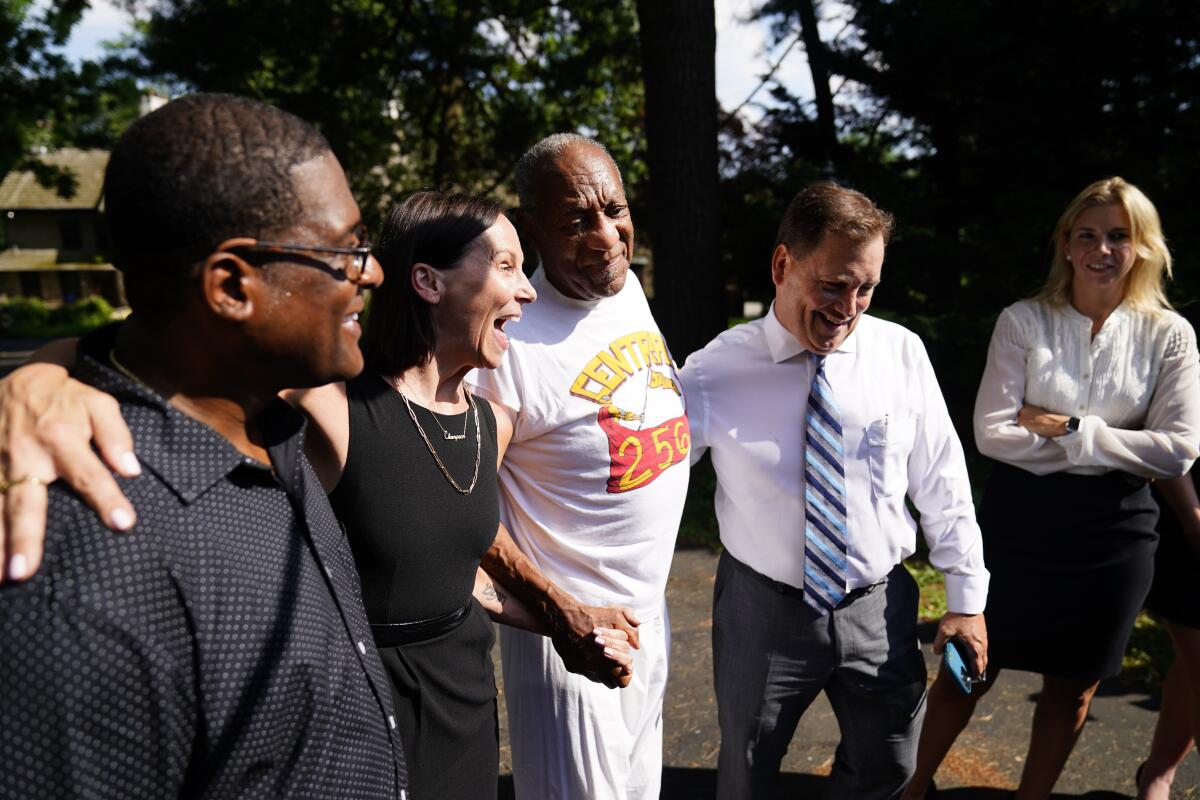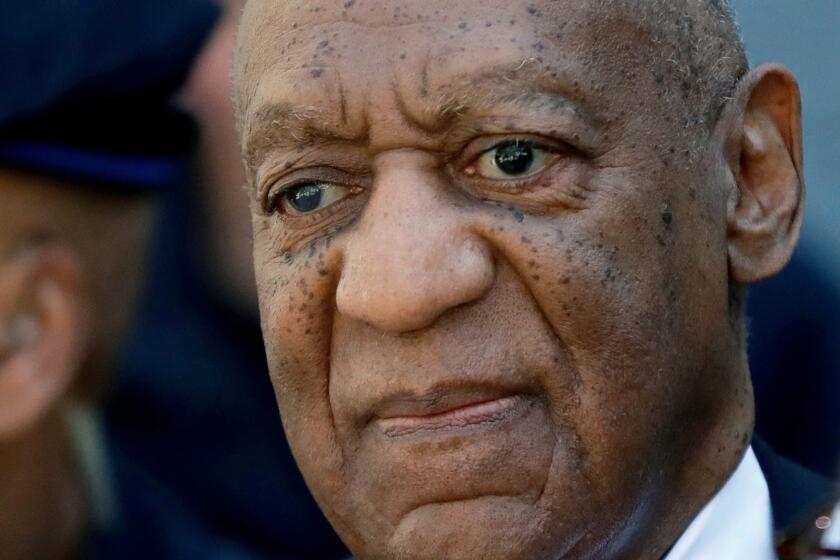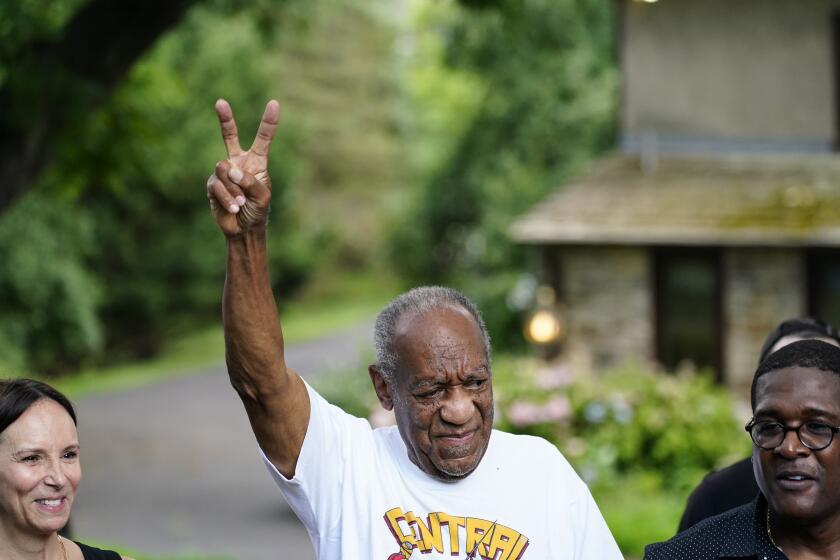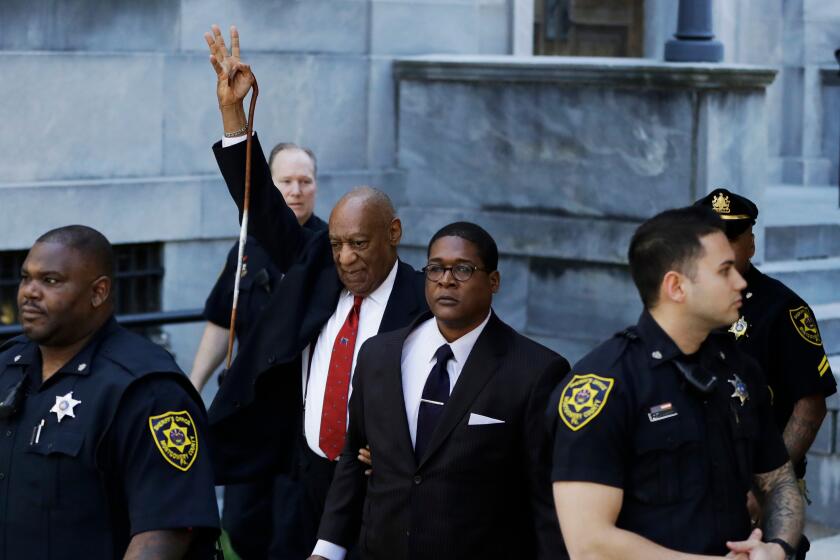Why was Bill Cosby set free? A legal principle brings anger, alarm to #MeToo movement

Few people have come to symbolize the #MeToo reckoning more than Bill Cosby, who has faced numerous allegations of sexual abuse from women and was one of the most prominent people to be convicted.
So there was shock Wednesday when Pennsylvania’s highest court overturned his sexual assault conviction and set him free.
There was immediate concern about what the ruling would do to the movement that seeks justice for sexual assault victims.
Legal experts say the court’s decision, which didn’t involve the facts of the assault but rather actions by the prosecutor, was based on an uncommon technicality and probably won’t have wider legal implications.
“While this decision is emotionally devastating, it does not negate that these women came together and held accountable a very important and powerful man and showed others what could be achieved,” said Jane Manning, a former New York sex crimes prosecutor and director of the Women’s Equal Justice Project.
Bill Cosby was released from prison after the Pennsylvania high court ruled the sex assault case against him violated an earlier deal with prosecutors.
What happened?
At the heart of the Pennsylvania Supreme Court’s decision to release the 83-year-old is a “non-prosecution” agreement Cosby made with a former Montgomery County district attorney after a woman came forward with allegations that the TV star had drugged and assaulted her at his suburban Philadelphia home in 2004.
In its 79-page opinion, the Pennsylvania Supreme Court wrote that the agreement should have barred the entertainer from facing any charges in the case. The court’s decision precludes any future prosecution.
Authorities began investigating Cosby in 2005 after Temple University employee Andrea Constand, to whom he had been a mentor, reported that he had assaulted her at his home after giving her pills that rendered her unconscious.
Bill Cosby was released from prison after Pennsylvania high court ruled the sex assault case against him violated an earlier deal with prosecutors.
What was the agreement?
Former Montgomery County Dist. Atty. Bruce Castor, who is best known for defending former President Trump during his second impeachment trial in February, had concerns at the time about the success of the case against Cosby absent a confession from the actor. Castor agreed not to prosecute him so that he wouldn’t be able to invoke his 5th Amendment right against self-incrimination in subsequent civil action brought by Constand.
There was no evidence the immunity promise was ever put in writing, according to court records.
Cosby made several incriminating statements during his depositions in the civil case, including his acknowledgment that he gave quaaludes to women he was pursuing sexually. Those statements were later used in his criminal trial by Castor’s successor.
Cosby settled with Constand for $3.4 million. He was criminally charged just days before the 12-year statute of limitations expired and amid a wave of new sexual assault accusations from women across the nation.
Cosby was convicted of assaulting Constand in 2018 and was sentenced to three to 10 years in state prison.
“When a prosecutor makes an unconditional promise of non-prosecution, and when the defendant relies upon that guarantee to the detriment of his constitutional right not to testify, the principle of fundamental fairness that undergirds due process of law in our criminal justice system demands that the promise be enforced,” Justice David N. Wecht wrote in the court’s majority opinion.
Pennsylvania’s highest court threw out Bill Cosby’s sexual assault conviction because a previous prosecutor promised him he wouldn’t be charged.
What has been the reaction?
In a statement, Montgomery County Dist. Atty. Kevin Steele said Cosby went free “on a procedural issue that is irrelevant to the facts of the crime.”
“My hope is that this decision will not dampen the reporting of sexual assaults by victims,” he said. “We still believe that no one is above the law — including those who are rich, famous and powerful.”
But John Manly, a Southern California attorney who has represented dozens of sexual assault survivors, said the court’s decision may have done just that.
“This is a huge step backward,” he said. “The Cosby decision yet again shows there are two systems of justice, one for the rich and powerful, and the other for the rest. The message sadly here is we cannot keep the powerful in prison.”
Cosby released a statement saying he was pleased by the outcome.
“I have never changed my stance nor my story,” he wrote. “I have always maintained my innocence. Thank you to all my fans, supporters and friends who stood by me through this ordeal. Special thanks to the Pennsylvania Supreme Court for upholding the rule of law.”
More to Read
Sign up for Essential California
The most important California stories and recommendations in your inbox every morning.
You may occasionally receive promotional content from the Los Angeles Times.














